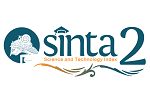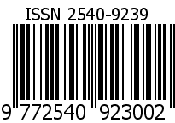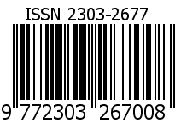The role of Jatmika Reading House volunteers in instilling children’s environmental literacy
Abstract
Jatmika Reading House is a community library that actively teaches environmental literacy through various activities, one of which is eco-enzyme making. This study aims to explore the role of volunteers in eco-enzyme making, identify the challenges faced during the activity, and understand the motivation of volunteers in contributing to Jatmika Reading House's activities. This research used a qualitative method with a case study approach. The informants in this study were two volunteers who were selected through a purposive sampling technique due to their direct involvement in eco-enzyme-making activity. Data collection techniques included interviews, indirect observation, documentation, and literature review. This research is important because although environmental education has developed, there are still few studies that specifically discuss the role of volunteers in teaching environmental literacy to children. In fact, volunteers have a strategic role in introducing the concept of sustainability and building environmental awareness through community activities. The results showed that volunteers acted as facilitators, mentors, instructors, encouragers, and organizers of children's participation. They faced various challenges, such as unconducive conditions due to limited tools and materials and an inadequate number of volunteers, resulting in less optimal activity management. Volunteers' motivations varied, ranging from the satisfaction of sharing knowledge and commitment to improving community literacy to personal happiness in social interaction. The findings from this study are expected to provide new insights to strengthen environmental literacy programs involving volunteers.
Keywords
Full Text:
PDFReferences
Adlini, M. N., Dinda, A. H., Yulinda, S., Chotimah, O., & Merliyana, S. J. (2022). Metode penelitian kualitatif studi pustaka. Edumaspul: Jurnal Pendidikan, 6(1), 974–980. https://doi.org/10.33487/edumaspul.v6i1.3394
Alender, B. (2016). Understanding volunteer motivations to participate in citizen science projects: A deeper look at water quality monitoring. Journal of Science Communication, 15(03), 1–19. https://doi.org/10.22323/2.15030204
Alshenqeeti, H. (2014). Interviewing as a data collection method: A critical review. English Linguistics Research, 3(1), 39–45. https://doi.org/10.5430/elr.v3n1p39
Bakar, R. (2014). The effect of learning motivation on student’s productive competencies in vocational high school, West Sumatera. International Journal of Asian Social Science, 4(6), 722–732. https://archive.aessweb.com/index.php/5007/article/view/2672/4057
Barrett, D., & Twycross, A. (2018). Data collection in qualitative research. Evidence Based Nursing, 21(3), 63–64. https://doi.org/10.1136/eb-2018-102939
Baškarada, S. (2014). Qualitative case study guidelines. The Qualitative Report, 19(40), 1–18. https://doi.org/10.46743/2160-3715/2014.1008
Ciesielska, M., Boström, K. W., & Öhlander, M. (2018). Observation methods. In Qualitative Methodologies in Organization Studies (pp. 33–52). Springer International Publishing. https://doi.org/10.1007/978-3-319-65442-3_2
Cincera, J., Kroufek, R., & Bogner, F. X. (2023). The perceived effect of environmental and sustainability education on environmental literacy of Czech teenagers. Environmental Education Research, 29(9), 1276–1293. https://doi.org/10.1080/13504622.2022.2107618
Dada, O. D. (2018). Evaluation of environmental literacy of pre-service teachers in New Zealand [The University of Waikato]. https://researchcommons.waikato.ac.nz/server/api/core/bitstreams/a761f67a-cc64-4a62-8cb2-c120674a8f20/content
Etikan, I., Musa, S. A., & Alkassim, R. S. (2016). Comparison of convenience sampling and purposive sampling. American Journal of Theoretical and Applied Statistics, 5(1), 1–4. https://doi.org/10.11648/j.ajtas.20160501.11
Fitriyah, C. Z., Wardani, R. P., & Rofiq, A. (2023). Peran mahasiswa dalam peningkatan literasi lingkungan di masyarakat Sempu Banyuwangi. Learning Community: Jurnal Pendidikan Luar Sekolah, 7(2), 130–135. https://doi.org/10.19184/jlc.v7i2.44864
Herawati, I. A. M., Putra, I. B. K. S., & Suyanta, I. W. (2023). Meningkatkan literasi lingkungan anak usia 5-6 tahun melalui projek eco enzyme. Kumara Cendekia, 11(3), 251–260. https://doi.org/10.20961/kc.v11i3.76862
Intan, A. P., & Sitio, R. P. (2017). Motivasi volunteer sebuah studi deskriptif pada CSO pendidikan anak marjinal dan jalanan. Jurnal Manajemen, 13(1), 76–93. https://doi.org/10.25170/jm.v13i1.809
Iwaniec, J., & Curdt-Christiansen, X. L. (2020). Parents as agents: Engaging children in environmental literacy in China. Sustainability, 12(16), 1–12. https://doi.org/10.3390/su12166605
Kusumaningrum, D. (2018). Literasi lingkungan dalam kurikulum 2013 dan pembelajaran IPA di SD. Indonesian Journal of Natural Science Education (IJNSE), 1(2), 57–64. https://doi.org/10.31002/nse.v1i2.255
Miles, M. B., & Huberman, A. M. (1994). Qualitative data analysis: An expanded sourcebook. Sage.
Mishra, S., Tiwari, A., & Trivedi, V. (2024). Volunteer and NGO matching platform. International Research Journal on Advanced Engineering Hub (IRJAEH), 2(04), 742–750. https://doi.org/10.47392/IRJAEH.2024.0104
Mokhzan, N. S., Sutan, R., & Yasin, R. M. (2023). Motives for volunteering among youth in promoting healthy well-being. International Journal of Advanced Research in Education and Society, 5(3), 525–539. https://doi.org/10.55057/ijares.2023.5.3.49
Moser, A., & Korstjens, I. (2018). Series: Practical guidance to qualitative research. Part 3: Sampling, data collection and analysis. European Journal of General Practice, 24(1), 9–18. https://doi.org/10.1080/13814788.2017.1375091
Muliarta, I. N., & Darmawan, I. K. (2021). Processing household organic waste into eco-enzyme as an effort to realize zero waste. Agriwar Journal, 1(1), 6–11. https://doi.org/10.22225/aj.1.1.2021.6-11
Nichol, B., Wilson, R., Rodrigues, A., & Haighton, C. (2024). Exploring the effects of volunteering on the social, mental, and physical health and well-being of volunteers: An umbrella review. VOLUNTAS: International Journal of Voluntary and Nonprofit Organizations, 35(1), 97–128. https://doi.org/10.1007/s11266-023-00573-z
Pardosi, B. Y. A., Manurung, L. M. R., & Firdarianti, R. (2021). Peran mahasiswa sebagai volunteer dalam meningkatkan kualitas literasi di desa 3T. Aksara: Jurnal Ilmu Pendidikan Nonformal, 7(2), 589–596. https://doi.org/10.37905/aksara.7.2.589-596.2021
Prasetio, V. M., Ristiawati, T., & Philiyanti, F. (2021). Manfaat eco-enzyme pada lingkungan hidup serta workshop pembuatan eco-enzyme. Darmacitya: Jurnal Pengabdian Kepada Masyarakat, 1(1), 21–29. https://journal.unj.ac.id/unj/index.php/darmacitya/article/view/24071
Rahardjo, M. (2017). Studi kasus dalam penelitian kualitatif: Konsep dan prosedurnya [UIN Maulana Malik Ibrahin Malang]. http://repository.uin-malang.ac.id/1104/1/Studi-kasus-dalam-penelitian-kualitatif.pdf
Rashid, Y., Rashid, A., Warraich, M. A., Sabir, S. S., & Waseem, A. (2019). Case study method: A step-by-step guide for business researchers. International Journal of Qualitative Methods, 18, 1–13. https://doi.org/10.1177/1609406919862424
Rusandi, & Rusli, M. (2021). Merancang penelitian kualitatif dasar/deskriptif dan studi kasus. Al-Ubudiyah: Jurnal Pendidikan Dan Studi Islam, 2(1), 48–60. https://doi.org/10.55623/au.v2i1.18
Sandlin, J. A., & Clair, R. St. (2023). Volunteers in adult literacy education. In Review of Adult Learning and Literacy (pp. 125–154). Routledge.
Sari, M., Afandi, & Marlina, R. (2020). Pentingnya literasi lingkungan dalam pembelajaran abad 21. Prosiding Seminar Nasional Pendidikan 2020, 685–689. https://www.researchgate.net/publication/353016105_PENTINGNYA_LITERASI_LINGKUNGAN_DALAM_PEMBELAJARAN_ABAD_21
Sarosa, S. (2021). Analisis data penelitian kualitatif. Kanisius.
Sopia, D. A., Avrilla, M., & Sya’bani, R. A. (2023). Pentingnya implementasi nilai pancasila sila kesatu dalam menumbuhkan karakter siswa sekolah dasar-analisis studi pustaka. Didaktik: Jurnal Ilmiah PGSD STKIP Subang, 9(2), 5792–5800. https://doi.org/10.36989/didaktik.v9i2.1373
Wahyudiyono. (2019). Implikasi penggunaan internet terhadap partisipasi sosial di Jawa Timur. Jurnal Komunika: Jurnal Komunikasi, Media Dan Informatika, 8(2), 63–68. https://doi.org/10.31504/komunika.v8i2.2487
Winchester, C. L., & Salji, M. (2016). Writing a literature review. Journal of Clinical Urology, 9(5), 308–312. https://doi.org/10.1177/2051415816650133
Wuni, C., & Husaini, A. (2021). Pelatihan pembuatan eco-enzyme dari limbah organik rumah tangga sebagai alternatif cairan pembersih alami. J-ABDI: Jurnal Pengabdian Kepada Masyarakat, 1(4), 589–594. https://doi.org/10.53625/jabdi.v1i4.253
DOI: https://doi.org/10.24198/jkip.v12i2.55170
Refbacks
- There are currently no refbacks.
Copyright (c) 2024 Author(s)

This work is licensed under a Creative Commons Attribution-ShareAlike 4.0 International License.
Jurnal Kajian Informasi & Perpustakaan Indexed by:
Jurnal Kajian Informasi & Perpustakaan
Program Studi Perpustakaan dan Sains Informasi d.h. Program Studi Ilmu Perpustakaan
Fakultas Ilmu Komunikasi, Universitas Padjadjaran
Jl. Raya Bandung-Sumedang Km. 21 Jatinangor, Sumedang, Indonesia 45363
WA: +62 877-1860-4022 (Risa Nurisani)
Telepon: +62227796954
Faksimile: +62227794122
email: jkip.fikom@unpad.ac.id
Jurnal Kajian Informasi & Perpustakaan is licensed under a Creative Commons Attribution-ShareAlike 4.0 International License
Jurnal Kajian Informasi & Perpustakaan supervised by:












2.png)
.png)



